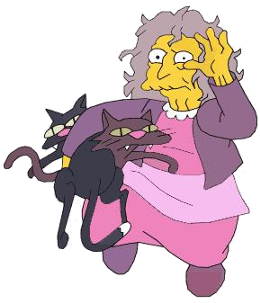Homely Men Can't Win for Losing
A woman's view of a man is influenced
by how handsome and law-abiding he is.
Women tolerate an unattractive man up to a point, but beware if he misbehaves. Then they'll easily shun him. So say Jeremy Gibson and Jonathan Gore of the Eastern Kentucky University in the US, after finding that . Their study in Springer's journal Gender Issues has significance for those using dating sites or doing jury duty.
Developing believable, effective characters may seem a lot of work, but if you, the writer,want to create believable people in your fiction, the more you know about people become who they are and the social obstacles they face in life, the better your work will be.
Take an unattractive man. Have you ever thought about the social obstacles he faces? According to this new research out Eastern Kentucky University, unattractive men are discriminated against in some subtle ways.
In developing a male character, you have to understand this discrimination - even if your character doesn't. If your man is attractive, life and relationships are easier. If unattractive, not as simple, which of course is going to have an impact on his psyche, his self-esteem and his general frustration level, which in turns will direct his words and actions.
Something to think about.
Here's the report.
Homely Men Can't Win for Losing
Discovering how someone can make a positive first impression is an important field of study because of its role in forming relationships. It is often based on physical appearance and whether someone sticks to social norms or not. Such impressions are made in a flash, but are not always correct.
The Halo Effect
In what is called the "halo effect," people warm up to others with positive characteristics, such as handsomeness. The "devil effect" or "negative halo effect" comes into play when people assume that others possess so-called "bad" characteristics, based on traits such as unattractiveness.
Gibson and Gore tested if and how levels of attractiveness and conforming to social norms combine to influence 170 college women's perceptions of men. Two male faces -- one attractive, the other not -- bearing similar features were paired in two written scenarios. In the one, the man committed a major social no-no, in the other not.
Breaking a Social Norm Off-putting
The researchers found that whether a man transgressed a social norm was a much greater put-off than whether he was unattractive. Normally women do not feel differently towards a homely man who toes the line. If that same ugly duckling, however, transgresses the boundaries of right or wrong, a magnified or "double" devil effect comes into play. He is then viewed in an extremely negative light, much more so than would have been the case if he were handsome.
"The unattractive male is tolerated up to a point; his unattractiveness is OK until he misbehaves," says Gibson.
In the judicial system, unattractive defendants are
also known to receive more severe penalties.
 | ||
| Creating Characters Writer's Digest Click image to order Powell's Books |
"A man who stands trial has already shown himself to have violated social norms in one way or another. If he is also unattractive, the magnified devil effect may result in a larger fine or sentence, as it could influence how negatively jurors view him and, as a result, the degree to which they believe him guilty of the crime," explains Gore.
Related stories:
- For Men, Online Generosity is a Competition
- Men lose their minds speaking to pretty women
- Men MUCH More Forgetful Than Women. Much, much more
- Men perceive women in red as more sexually receptive. Do women as well?
- Men with negative, sexist attitudes towards women use assertive courtship strategies
- Men, Women, Sex, & Regret
- Trying to sound sexy? Sorry, guys, you just don't have what it takes.

Comments
Post a Comment